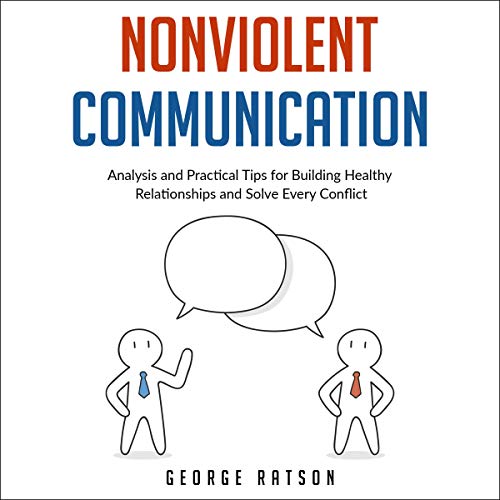
Nonviolent Communication
Analysis and Practical Tips for Building Healthy Relationships and Solve Every Conflict
No se pudo agregar al carrito
Add to Cart failed.
Error al Agregar a Lista de Deseos.
Error al eliminar de la lista de deseos.
Error al añadir a tu biblioteca
Error al seguir el podcast
Error al dejar de seguir el podcast
 Exclusivo para miembros Prime: ¿Nuevo en Audible? Obtén 2 audiolibros gratis con tu prueba.
Exclusivo para miembros Prime: ¿Nuevo en Audible? Obtén 2 audiolibros gratis con tu prueba.Compra ahora por $14.01
-
Narrado por:
-
Connor Curlewis
-
De:
-
George Ratson
Nonviolent communication, or NVC, is a strong communication tool, but it goes much further than that.
It's a way in the world to be, dream, and live. The aim is to encourage heartfelt connections between ourselves and others — connections that allow compassionate giving to meet the needs of all. This encourages us to give from the heart and others. It also allows us to communicate with our inner divinity and from moment to moment with what is alive in us.
We might say that NVC is a language of compassion, but it is truly a language of life in which compassion naturally comes. The model shows us how we can communicate what's alive in us and see what's alive in others. When we know what's going on in us, we can look at what we can do to improve our life.
Nonviolent Communication evolved from an intense interest in two issues that I had. First, I wanted to understand better what happens to humans which leads some of us to act violently and exploitably. And secondly, I wanted to understand better what kind of education fits our efforts to remain compassionate - which I think is our nature - even when others act violently or exploitably.
The idea that has been around for many years suggests violence and abuse happens because people are innately evil, egoistic, or aggressive. But I've seen people who aren't like that; I've seen a lot of people who like to contribute to the well-being of each other.
So, I wondered why some people seem to enjoy the pain of other people, while others are the opposite.
I found the following three reasons to be very important in understanding why some of us react aggressively and some of us respond compassionately in similar situations:
- The language we've been taught to use
- Why we got taught how to think and talk
- We have learnt specific strategies to affect others and ourselves.
In this book, you'll learn:
- How to communicate effectively and make people listen
- How to resolve tough conflicts
- How to listen to your communication partner
- How to process anger-ridden information
- How to express yourself calmly when angry and be listened to
This is a book you'd enjoy listening to!
©2020 George Ratson (P)2020 George RatsonLos oyentes también disfrutaron:




















Las personas que vieron esto también vieron:





